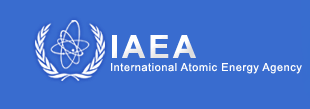Speaker
Mr
Hiroo Kondo
(Japan)
Description
Construction and initial performance tests of EVEDA (Engineering Validation and Engineering Design Activities) Lithium Test Loop (ELTL) were completed and therefore one of the major milestones in the engineering validation toward IFMIF (International Fusion Materials Irradiation Facility) was accomplished. The ELTL, which holds 2.5-ton Li, is a proto-type of a Li target facility of the IFMIF and is the largest-ever liquid lithium loop in the history of the fusion research.
Construction of the ELTL, which simulates hydraulic condition of the Li target and purification systems envisaged in the IFMIF, is a main pillar of the Japanese activities of the lithium target system in the IFMIF/EVEDA. Engineering design of the ELTL was carried out in 2009 to early 2010, and then construction was commenced in 2009 and completed in Nov. 2010 in the Japan Atomic Energy Agency.
The initial validation performance tests conducted after the construction included the following three stages: 1) lithium ingot installation in the ELTL, 2) basic operations (lithium charging and draining), and 3) lithium circulation tests. In the third set of tests, the performance of each component comprising the ELTL (e.g. a lithium cooler, electro-magnetic pumps and flow meters, a cold trap and an economizer) was confirmed to meet the predefined specifications. In conclusion, it is assured that the electro-magnetic pump circulates lithium at the flow rate of 3000 L/min thorough the target assembly. In the final stage of the circulation test, stable lithium flow at a velocity of 5 m/s was successfully achieved in the target assembly at an Ar gas pressure of 0.12 MPa.
Country or International Organization of Primary Author
Japan
Author
Mr
Hiroo Kondo
(Japan)
Co-authors
Dr
Eiichi Wakai
(Japan Atomic Energy Agency)
Dr
Friedrich Groeschel
(IFMIF/EVEDA Project Team)
Mr
Hirakawa Yasushi
(Japan Atomic Energy Agency)
Prof.
Hiroshi Horiike
(Osaka University)
Mr
Hiroshi Iuchi
(Mitsubishi Heavy Industries Mechatronics Systems, LTD)
Mr
Izuru Matsushita
(Mitsubishi Heavy Industries Mechatronics Systems, LTD)
Dr
Mizuho Ida
(Japan Atomic Energy Agency)
Mr
Nobuo Yamaoka
(Osaka University)
Dr
Takuji Kanemura
(Japan Atomic Energy Agency)
Mr
Tomohiro Furukawa
(Japan Atomic Energy Agency)
Mr
Watanabe kazuyoshi
(Japan Atomic Energy Agency)

